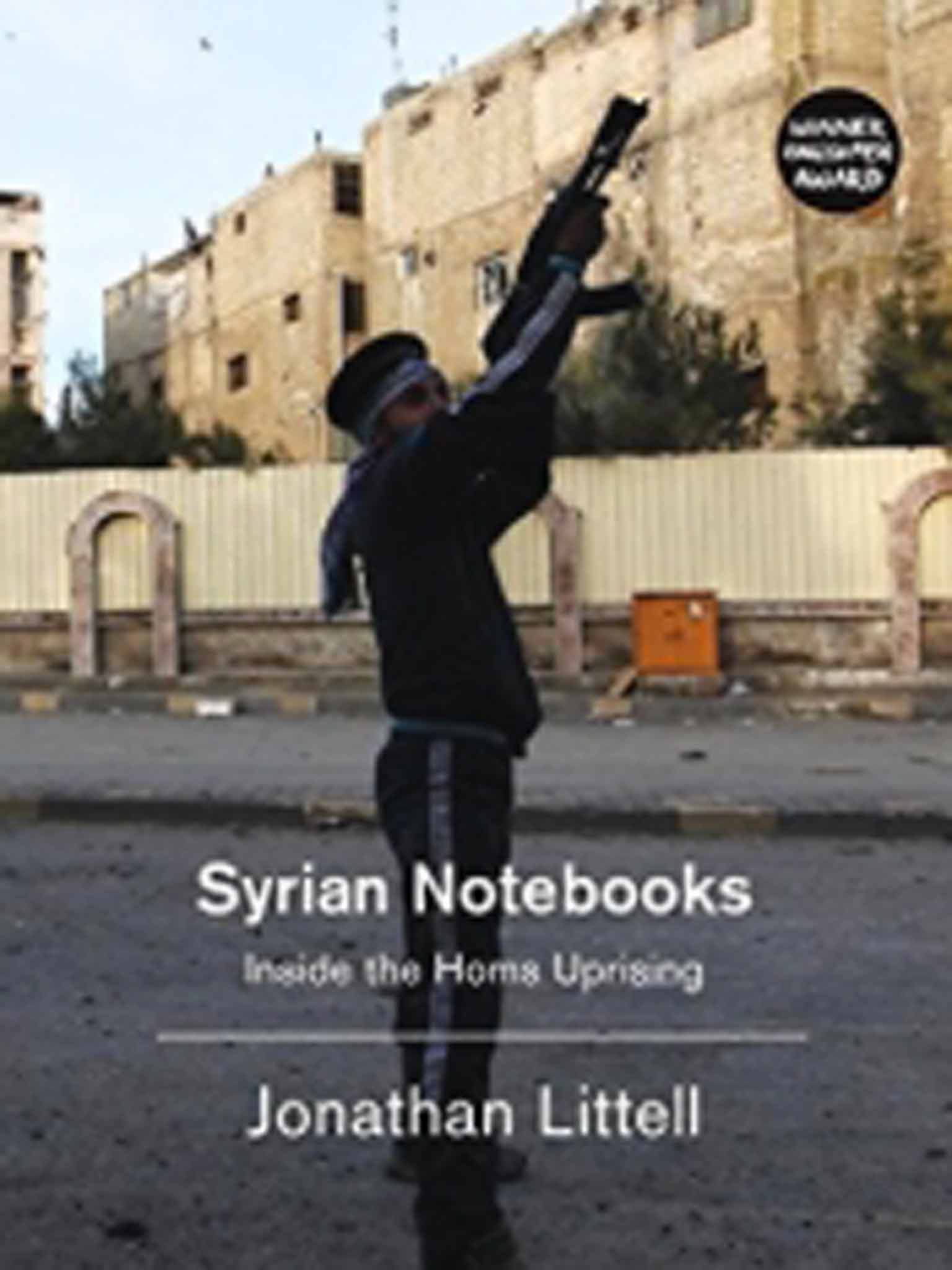Syrian Notebooks: Inside the Homs Uprising by Jonathan Littell - book review: Novel notes from a war zone we have forgotten
Littell chronicles a blur of visits to the frontlines, of racing across snipers' alleys, talking to the war-wounded and tales of torture by the regime

It takes guts to smuggle yourself into a war zone, and nowhere more so than in Syria, where more than 80 journalists have been killed in the past four years. Maybe war reporters also need a certain lack of imagination. But that doesn't describe Jonathan Littell, who spent several weeks in the city of Homs in 2012, just before its uprising was brutally quashed by the regime.
Littell is more of a novelist than a journalist. His book starts with an extended metaphor about dreams and nightmares. Littell has a dream, one night when the army is expected to attack, of meeting the French philosopher Michel Foucault. And the only book he takes with him is Plutarch's Lives, which he reads assiduously in between the explosions and gunfire.
Littell's pithy prose is the more remarkable for his claim that much of it was recorded in his notebooks on the spot, with minimum revision afterwards. Thus, in one safe house a young fighter runs a vacuum cleaner through a room full of Kalashnikovs with "touching thoughtfulness". The ubiquitous mobile phones on which he is repeatedly shown images of conflict are "museums of horror".
Littell chronicles a blur of visits to the frontlines, of racing across snipers' alleys, talking to the war-wounded and tales of torture by the regime. Much time is spent at clandestine medical clinics, where he witnesses a stream of casualties. But the fractured nature of the narrative also permits mouth-watering accounts of meals consumed, spats with prickly activists and even discussions about the nature of God.
Littell's notebooks hint at the unravelling of Syria's social fabric, the deliberate fostering of sectarianism and the first stirrings of the Islamists who have since taken over the revolution. By contrast, he describes the surprising joyfulness of the demonstrations he witnesses, a collective jubilation he associates with the popular dream of liberty before it descended into today's nightmare.
What is the point of reopening, as he puts it, "this small window on three weeks lost in the distant past"? Littell pins his own colours to the mast. Bashar al-Assad's regime is "putrid, senile and ultimately doomed". He wants to show that without "our callous indifference", the dream might have stayed alive, and also to ensure that the West, now distracted by the rise of Islamic State, doesn't forget the real villain of the piece.
To that end he provides vivid testimony. But it's hard not to sympathise with a leader of the Free Syria Army. "If your peoples haven't understood [by now]", he tells Littell, "there's no point."
Subscribe to Independent Premium to bookmark this article
Want to bookmark your favourite articles and stories to read or reference later? Start your Independent Premium subscription today.

Join our commenting forum
Join thought-provoking conversations, follow other Independent readers and see their replies